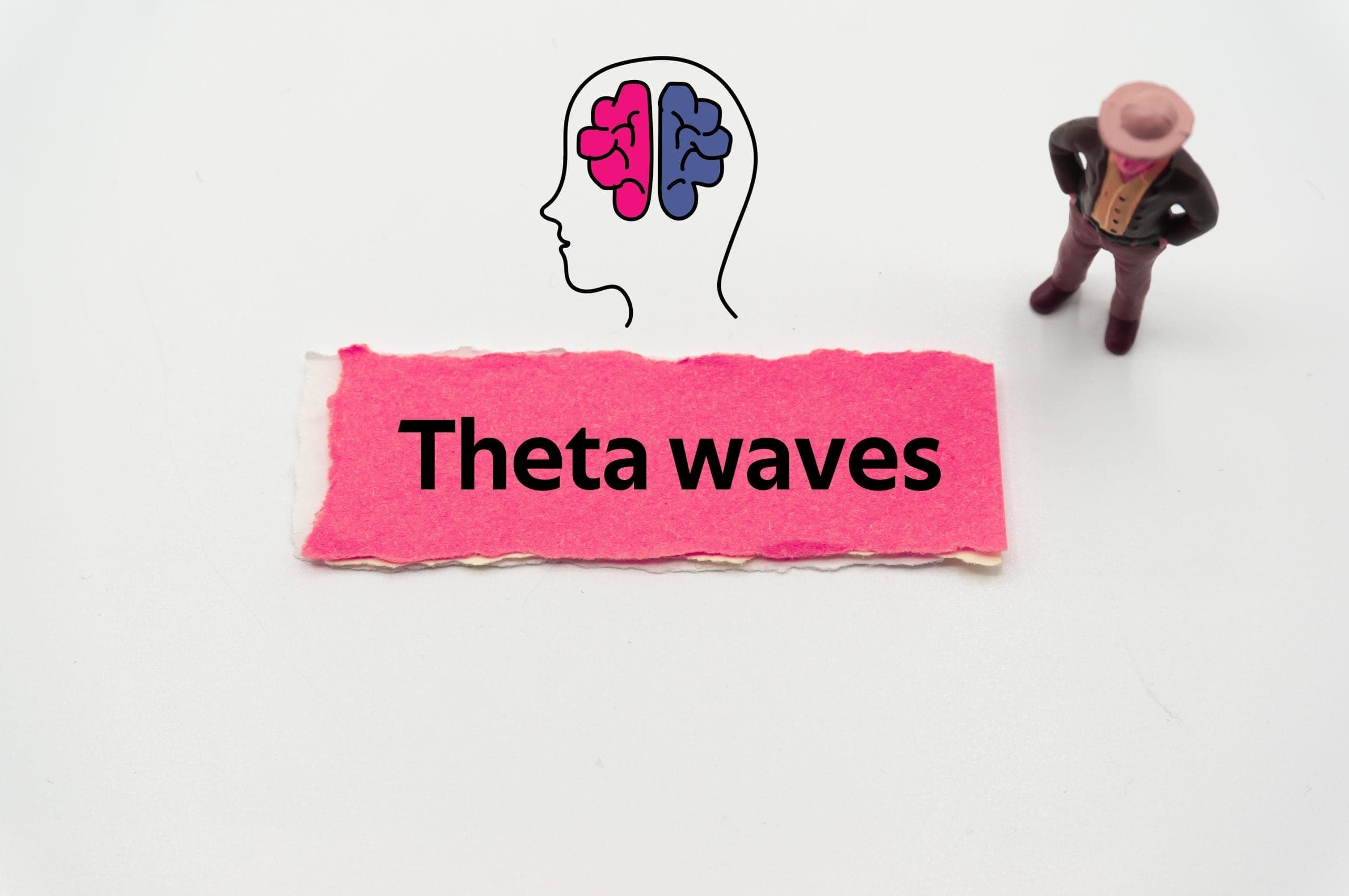Exploring Theta Waves and Neurodivergence
When discussing neurodivergence, including ADHD and autism, there’s often a focus on managing day-to-day challenges. But what if certain brainwave patterns, like theta waves, could offer unique insights and strategies for supporting neurodivergent traits? Theta waves and neurodivergence are an exciting area of research, showing how brainwave activity influences creativity, focus, and emotional balance, especially for neurodivergent individuals.
What Are Brainwaves?
Brainwaves are rhythmic electrical impulses in the brain, each associated with different cognitive states. These brainwave types, measured in hertz (Hz), play distinct roles in how we feel and process the world:
- Delta Waves (0.5 – 4 Hz): These slow waves dominate deep sleep and promote physical and mental restoration.
- Theta Waves (4 – 8 Hz): Linked to creativity, deep relaxation, and light sleep, theta waves help the mind relax and process emotions. Read more about Theta Waves here.
- Alpha Waves (8 – 12 Hz): Present in calm but alert states, alpha waves aid in relaxation and clear thinking.
- Beta Waves (12 – 30 Hz): These faster waves support active thinking, problem-solving, and focus.
- Gamma Waves (30 Hz and above): The fastest brainwaves, tied to perception and information processing.
Theta waves and neurodivergence is an area that stands out, particularly because theta waves appear more frequently in individuals with ADHD during moments of creativity and reflection. This may explain why many neurodivergent individuals excel in creative fields, making theta waves a topic worth exploring further.
Unlock peak brain performance with science-backed biohacks. Join free now & get your guide for just £4.99 (45% off)!

Theta Waves and Neurodivergence: A Closer Look at ADHD and Autism
Research on theta waves and neurodivergence suggests that neurodivergent individuals, including those with ADHD, tend to exhibit higher theta activity. This heightened activity is associated with imaginative thought, intuition, and daydreaming, which can be strengths in the right environment.
Creativity and Problem Solving:
Theta waves foster a relaxed mental state that promotes new ideas and novel connections, making it easier for ADHD individuals to access creative thinking. This creative boost aligns with the ADHD mind’s natural tendencies toward curiosity and divergent thinking. For autistic individuals, theta wave activities may offer a way to explore emotions and self-awareness in a less structured, more intuitive form.
Emotional Regulation and Relaxation:
Many neurodivergent people experience intense emotional states. Theta waves, known for their link to calm and emotional insight, can help manage these heightened responses. Activities that boost theta wave production, like mindfulness or artistic expression, may offer neurodivergent individuals effective ways to handle sensory or emotional overload.
Practical Applications of Theta Waves for ADHD and Neurodivergent Support
Using the principles of theta waves and neurodivergence, educators and caregivers can offer targeted support. Here are some practical ways to leverage theta waves for a calming, focused environment:
- Mindfulness and Meditation Practices:
Short mindfulness exercises, like guided meditations, can help ADHD individuals tap into theta states, promoting relaxation and mental clarity. For neurodivergent individuals, practicing mindfulness can create a space of calm in a potentially overstimulating world. - Creative Outlets and Self-Expression:
Encouraging neurodivergent individuals to explore creative activities like painting or journaling can increase theta wave activity, providing both emotional release and focus. This is especially beneficial for those who might struggle with traditional verbal communication. - Music and Rhythmic Exercises:
Listening to calming, rhythmic music can stimulate theta waves, helping to regulate mood and manage anxiety. Neurodivergent individuals may benefit from setting aside time for musical activities that promote relaxation. - Healthy Sleep Patterns:
Quality sleep is vital for brain health, supporting both theta and delta waves. Creating a pre-sleep routine that includes relaxation techniques, such as reading or deep breathing, can aid in achieving better rest, enhancing theta wave activity.
Building Theta Wave Practices into Everyday Life
Integrating theta wave activities into a daily routine can provide lasting support for neurodivergent minds. Here’s how to make theta wave-enhancing activities part of everyday life:
- Morning Mindfulness Routine: Starting the day with a brief meditation can set a balanced tone, helping ADHD individuals maintain focus and calm.
- Artistic Expression for Emotional Balance: Creative outlets, whether painting, sculpting, or drawing, offer a soothing way to manage stress and increase self-awareness.
- Engaging with Music and Movement: Incorporating rhythmic activities, such as dancing or listening to soothing music, can enhance theta waves, supporting emotional balance and reducing anxiety.
- Pre-Sleep Mindfulness: A calming activity before bed, like deep breathing, can help promote theta waves, leading to a more restorative sleep.
The Gut-Brain Connection: How Gut Health Influences Theta Waves
Interestingly, the gut-brain axis—the link between our digestive and nervous systems—also impacts brainwave activity, including theta waves. Research suggests that a balanced gut microbiome can support brain health, influencing focus, mood, and even sleep quality.
For neurodivergent individuals, optimising gut health may help in balancing brainwaves, potentially reducing ADHD symptoms or managing sensory sensitivity. Foods rich in fibre, probiotics, and omega-3s are known to support the gut-brain axis, fostering a healthier mental state.
Embracing the Potential of Theta Waves in Neurodivergence
As we continue to explore brainwave patterns and their effects on neurodivergent traits, the unique role of theta waves in ADHD and autism support becomes clearer. Embracing the creative, calm-inducing properties of theta waves can offer practical benefits for neurodivergent individuals, from emotional regulation to focused productivity.
Integrating these practices—whether through art, mindfulness, or music—into daily routines creates an inclusive approach that celebrates neurodivergent strengths. By understanding how theta waves can support neurodivergent traits, we can create more balanced, understanding environments where each individual’s natural rhythm is valued.
Join Our Community
We’re not just here to inform you about the latest information on ADHD and neurodivergence, but also to support you and help you grow. At Herbal Biohacker, our community is a non-judgement space where you can share your thoughts with others and even speak with specialised consultants.







